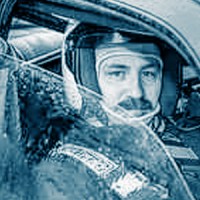Volkswagen is ceasing all motor sports ventures that incorporate an internal combustion engine, according to a statement released Friday. The move further underlines VW’s commitment to electric vehicles (EVs), and comes as a surprise to the motor sports world, as this decision affects racing series from the World Rally Championship to the World Touring Car Championship. The switch seems to only effect Volkswagen-branded vehicles and not Porsche or Audi.
“Volkswagen is resolutely committing to e-mobility and will say goodbye to factory-backed commitments using internal combustion engines,” sais Frank Welsch, member of the Board of Management of the Volkswagen Passenger Cars Brand.
Sven Smeets, motorsport director for VW, had further comments: “Electric mobility offers enormous development potential, and in this regard, motor sport can be a trailblazer: On the one hand, it serves as a dynamic laboratory for the development of future production cars and, on the other, as a convincing marketing platform to inspire people even more toward electric mobility. That is why we are going to focus more than ever on factory-backed electric drive commitments and continue to expand our activities with the development of the MEB. Innovative technology relevant to the car of the future is our focus.”
The production of the Golf GTI TCR for the racetrack will expire at the end of 2019, and a successor based on the new generation will not be offered. Customer service and spare parts supply will be guaranteed in the long term. In the World Rally Championship, customer cars will continue to be built and parts supplied, however, there will be no official factory involvement. The same will be true for the Sebastien Loeb Racing World Touring Car Cup team.
VW is no stranger to fielding successful electric-powered race cars. It currently holds records at the Pikes Peak International Hill Climb, Goodwood Festival of Speed, and the Tianmen Mountain Hillclimb. The new ID.R electric prototype also holds a lap record at the Nürburgring.
Curiously, it was just two days ago that VW’s U.S. media site announced a 2020 project by Rhys Millen Racing to field a Class 7 (midsized pickup truck) for the Baja 1000 featuring a 2.0-liter internal combustion engine used by the former VW Polo WRC car. The vehicle is scheduled to be driven by Tanner Foust, a VW brand ambassador and championship-winning race driver. Phone calls to Rhys Millen went unanswered.



